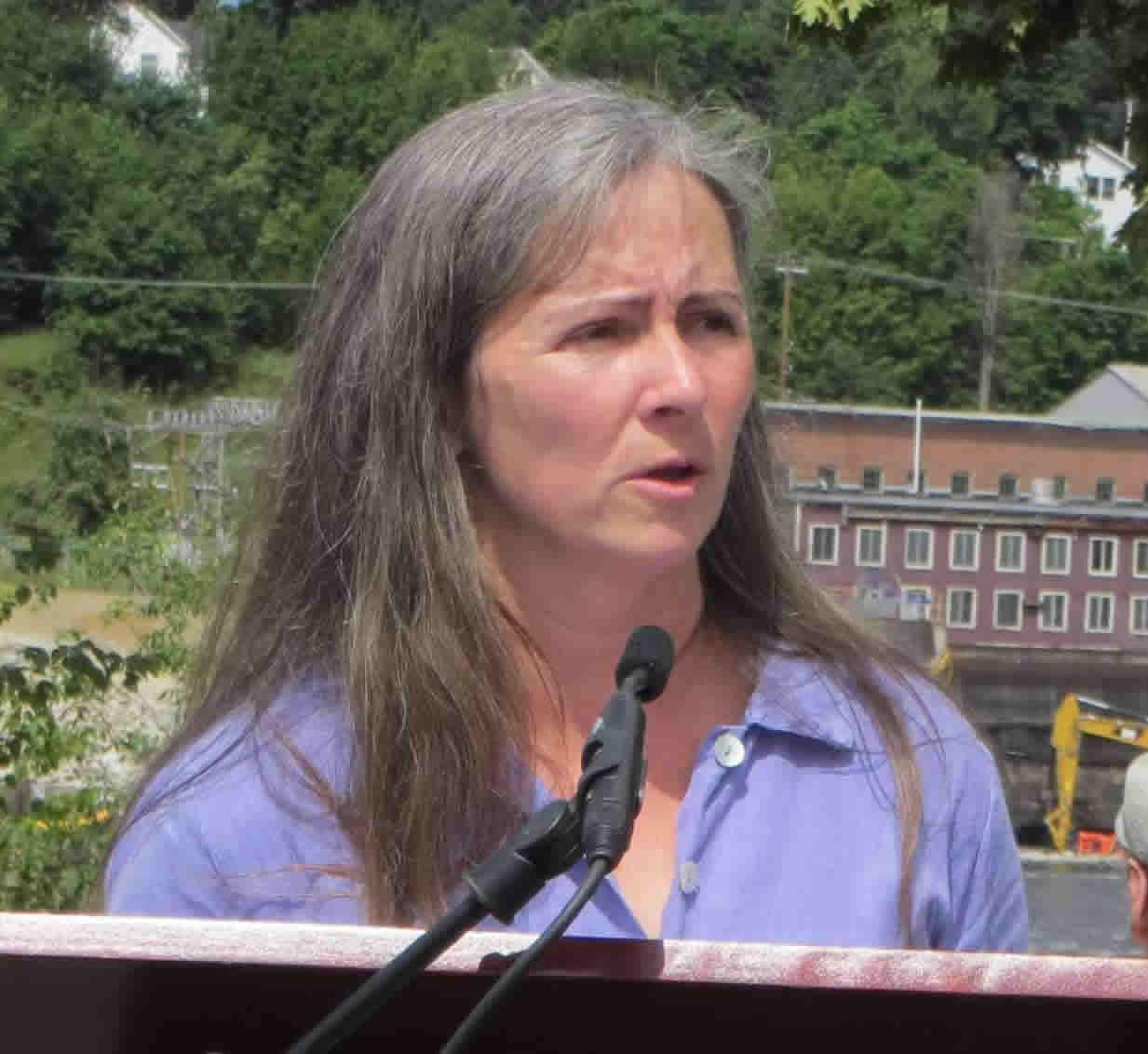Keynote Speaker
Laura Rose Day
Executive Director of the Penobscot River Restoration Trust
"Headwaters to the Sea: Opening Sea-run Fish Migration Corridors on Maine Rivers, Breaking Down Barriers to Large-scale Restoration"
Laura Rose Day of Hollowell Maine is the Executive Director of the Penobscot River Restoration Trust. She has degrees in wildlife management, and in environmental and energy law.
She was the Watershed Program Director at the Natural Resources Council of Maine and she helped found Maine Rivers, and was instrumental in the removal of the Edwards Dam on the Kennebec River. Nearly a decade ago she oversaw acquisition of the Great Works, Veazie, and Howland Dams, and today only the Howland Dam remains, but it is slated for bypass in 2015.
For nearly twenty years she has worked to ensure the health of river ecosystems and in this time she has been Counsel for the U.S. Environmental Protection Agency, and worked for the National Wildlife Federation’s Lake Superior and Biodiversity Programs, and the Watershed Program Director for the Natural Resources Council of Maine.
The Penobscot River Restoration Trust is a non-profit organization working to create sustainable native sea-run fisheries on the Penobscot River for people and wildlife. In 2008 the Penobscot River Restoration Project was awarded a Cooperative Conservation Award from the U.S. Department of the Interior.
Restoration of the Penobscot River, which is ongoing, is the most significant river sea-run fisheries restoration project ever undertaken in the United States. It is among the most important efforts in the modern era to restore a declining and depleted sea-run fishery.
In a recent interview, she noted: “Ultimately, we were able to get everyone to look at all of the Penobscot River’s values — energy, paddling, culture, fisheries — and say, how can we maximize all these gifts? The commitment that people had to not always lead with their own interest but to step back and consider the greater common good was key.”
In 2013 she was named as recipient of the Lee Wulff Atlantic Salmon Conservation Award by the Atlantic Salmon Federation.


